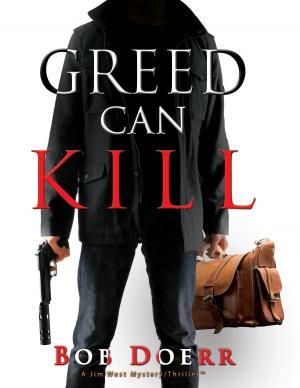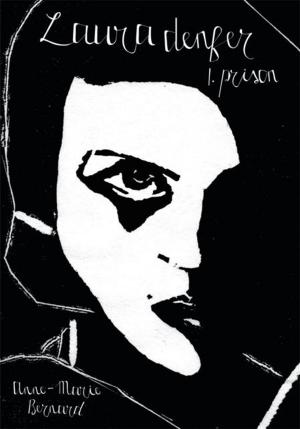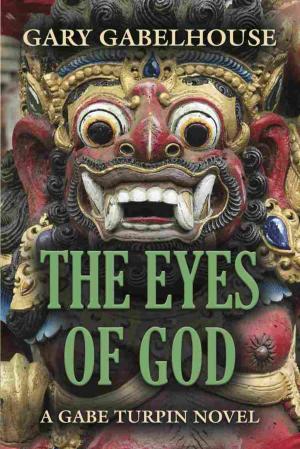The Mystery Of Rabbi Moishe (Short Story)
For my grandfather, who will forever remain in Auschwitz
Mystery & Suspense, International, Fiction & Literature, Thrillers| Author: | Laszlo Malota | ISBN: | 1230001315950 |
| Publisher: | Malota | Publication: | August 19, 2016 |
| Imprint: | Language: | English |
| Author: | Laszlo Malota |
| ISBN: | 1230001315950 |
| Publisher: | Malota |
| Publication: | August 19, 2016 |
| Imprint: | |
| Language: | English |
Black plumes of sooty smoke no longer rise from the long and twisted chimneys of the Auschwitz crematoriums. Weeds and grass grow among the barracks, standing cells, guard towers, and gas chambers. The executions, gassings, liquidations and separations have all come to an end. No more new transports arrive. The SS guard room and camp manager’s office stand empty. No one puts the prisoners’ personal effects in the storehouse anymore. The heavy silence of death has taken over the home of merciless terror, suffering, and murder. Few of those who survived the hell of this now silent place, remain alive. The dead can never escape, but remain as fallen ash. Until the end of time, they will never leave. Teofil Dabrowsky had been a prisoner assigned to supervise the forced labor, an oberkapo. He remembered most of the survivors, as well as those who would forever remain in Auschwitz because of him.
Now, twenty years later, he was finally returning to his childhood home. He didn’t feel an ounce of guilt when he surveyed the small, decrepit square; and straightening himself out, he used the rearview mirror of the car to pat his hair down. His mouth twisted into a holier-than-thou grin.
“Who in their right mind would show their ratty face to you? They’re nothing compared to you, Teo. You honor them by showing up here. They’d all have been lying flat on the ground before you, oberkapo Dabrowsky, bowing before you, begging and humiliated. You, who all those rotten Jews feared. Like Obojski. Wait a moment...isn’t that him over there? Do my eyes decieve me? Is it the great and plotting Obojski? The model prisoner? The perfect specimen? The nobody.” He laughed as he thought about it. But then he spotted two people at the entrance of the synagogue, and he began to choke up.
“I have to go over there. They are my parents, after all,” he muttered, but he immediately changed his decision. Disgust and shame had proved more powerful than his sudden sensitivity.
“What’s gotten into me? Isn’t it their fault for raising me to be a Jew? They’re suffering for a reason. How low have I sunk, damn it?
He turned his eyes away from his parents and looked at the other people standing in the square. He recognized a few more faces in the crowd, and he suddenly felt an overwhelming jolt of shock, as his stomach began to churn. He was shaking.
“They hate me for sure.” The thought surprised him. Enmity would be a completely logical response, since a lot of Jews were sent to internment camps from this city. Only a few returned, and they knew how inhumanely Dabrowsky had treated the prisoners under his supervision.
They woud have heard many tales from Obojski, who spent quite some time in the barracks. He told stories of how Dabrowsky loved to beat the prisoners, people of his own faith, and how he enjoyed watching them grow weak; how he proudly watched the corpse carriers toss the bodies onto stretchers.
Dabrowsky showed mercy to no one. Generally, he went for those who had money or assets. He humiliated and beat his childhood friends, too. Dabrowsky had a close connection to the special unit of prisoners assigned to collect belongings at the crematorium, so he could get his hands on the highly guarded valuables of the victims for cheap. If he wanted gold teeth, he would use pliers that he personally requisitioned, specifically for this reason. This way he could have access prior to the dentist working at the camp mortuary. Now, after twenty years, self-satisfied and unchanged, he came back, expecting absolution.
A man standing in the square noticed the unexpected visitor. He nodded in the direction of the car and said something to his friends, who all turned to look back. Dabrowsky watched them nervously and decided to move out of the way...
Black plumes of sooty smoke no longer rise from the long and twisted chimneys of the Auschwitz crematoriums. Weeds and grass grow among the barracks, standing cells, guard towers, and gas chambers. The executions, gassings, liquidations and separations have all come to an end. No more new transports arrive. The SS guard room and camp manager’s office stand empty. No one puts the prisoners’ personal effects in the storehouse anymore. The heavy silence of death has taken over the home of merciless terror, suffering, and murder. Few of those who survived the hell of this now silent place, remain alive. The dead can never escape, but remain as fallen ash. Until the end of time, they will never leave. Teofil Dabrowsky had been a prisoner assigned to supervise the forced labor, an oberkapo. He remembered most of the survivors, as well as those who would forever remain in Auschwitz because of him.
Now, twenty years later, he was finally returning to his childhood home. He didn’t feel an ounce of guilt when he surveyed the small, decrepit square; and straightening himself out, he used the rearview mirror of the car to pat his hair down. His mouth twisted into a holier-than-thou grin.
“Who in their right mind would show their ratty face to you? They’re nothing compared to you, Teo. You honor them by showing up here. They’d all have been lying flat on the ground before you, oberkapo Dabrowsky, bowing before you, begging and humiliated. You, who all those rotten Jews feared. Like Obojski. Wait a moment...isn’t that him over there? Do my eyes decieve me? Is it the great and plotting Obojski? The model prisoner? The perfect specimen? The nobody.” He laughed as he thought about it. But then he spotted two people at the entrance of the synagogue, and he began to choke up.
“I have to go over there. They are my parents, after all,” he muttered, but he immediately changed his decision. Disgust and shame had proved more powerful than his sudden sensitivity.
“What’s gotten into me? Isn’t it their fault for raising me to be a Jew? They’re suffering for a reason. How low have I sunk, damn it?
He turned his eyes away from his parents and looked at the other people standing in the square. He recognized a few more faces in the crowd, and he suddenly felt an overwhelming jolt of shock, as his stomach began to churn. He was shaking.
“They hate me for sure.” The thought surprised him. Enmity would be a completely logical response, since a lot of Jews were sent to internment camps from this city. Only a few returned, and they knew how inhumanely Dabrowsky had treated the prisoners under his supervision.
They woud have heard many tales from Obojski, who spent quite some time in the barracks. He told stories of how Dabrowsky loved to beat the prisoners, people of his own faith, and how he enjoyed watching them grow weak; how he proudly watched the corpse carriers toss the bodies onto stretchers.
Dabrowsky showed mercy to no one. Generally, he went for those who had money or assets. He humiliated and beat his childhood friends, too. Dabrowsky had a close connection to the special unit of prisoners assigned to collect belongings at the crematorium, so he could get his hands on the highly guarded valuables of the victims for cheap. If he wanted gold teeth, he would use pliers that he personally requisitioned, specifically for this reason. This way he could have access prior to the dentist working at the camp mortuary. Now, after twenty years, self-satisfied and unchanged, he came back, expecting absolution.
A man standing in the square noticed the unexpected visitor. He nodded in the direction of the car and said something to his friends, who all turned to look back. Dabrowsky watched them nervously and decided to move out of the way...















